Lord Buddha Day! Vesak May 16 2022: Buddha’s Birthday! , the “most sacred day to millions of Buddhists around the world” — UN
Mark May 16, 2022 on your calendar as a day for extra practice, offerings, and meritorious deeds such as giving. This is not only Vesak — Buddha’s birthday! — it is also a lunar eclipse day, a full moon...
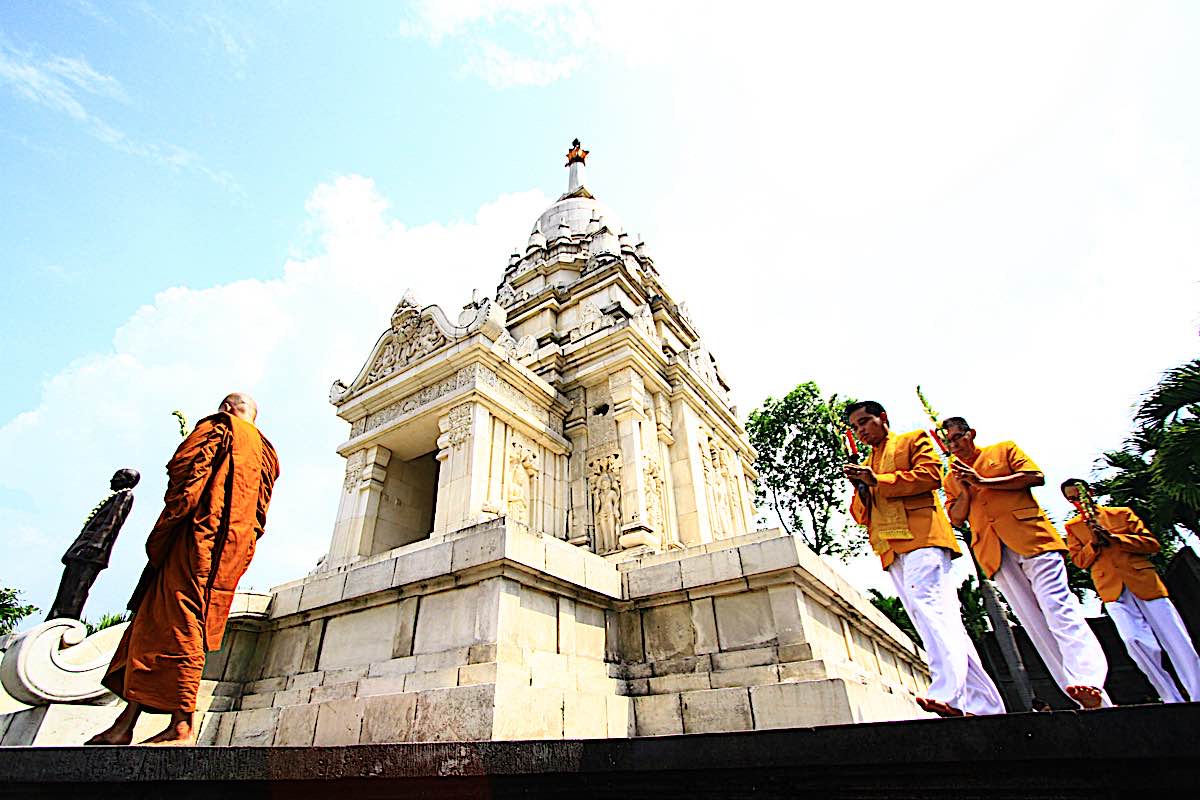
Mark May 16, 2022 on your calendar as a day for extra practice, offerings, and meritorious deeds such as giving. This is not only Vesak — Buddha’s birthday! — it is also a lunar eclipse day, a full moon and Medicine Buddha Puja Day. Any of those, alone, would be enough to celebrate. Traditionally, on Buddha Days, an on eclipse, the merit (good karma!) from your practices and dana are multiplied millions of times! (This is an English translation of Sanskrit, basically indicating — a lot!) “Skies of merit,” as many teachers say.

Bathing a statue of the Buddha is a tradition in some areas for Buddha Day or Vesak Day.
Buddhism is characterized as generous, loving, and compassionate. In keeping with these beliefs, on Buddha’s “birthday” it is most important to give and celebrate love and kindness. Buddha, a living, breathing being who attained Englightenment (by archeological evidence, c 563 B.C. to 583 B.C. See timeline below) and who taught a path of wisdom and compassion.
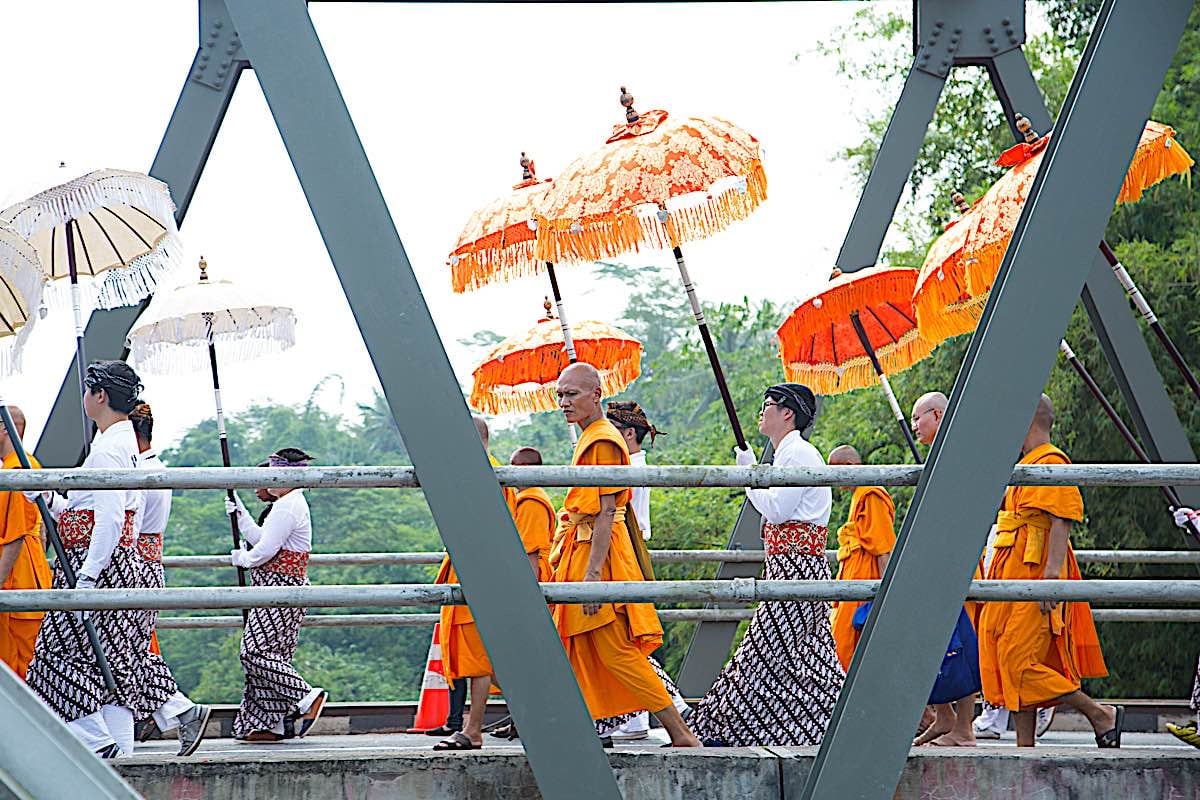
Vesak celebrations on the way to flying lanterns at the Borobudur Temple.
To Buddhists, around the world, the most important day of the year is Vesak (Wesak) — a day set aside to honor not only the birth (circa 563 B.C.), but also the enlightenment (528 B.C.), and the Parinarvana of Guatama Buddha (483 B.C.).
Vesak falls on the full moon called the “Flower Moon” — this year it will be May 16, 2021.
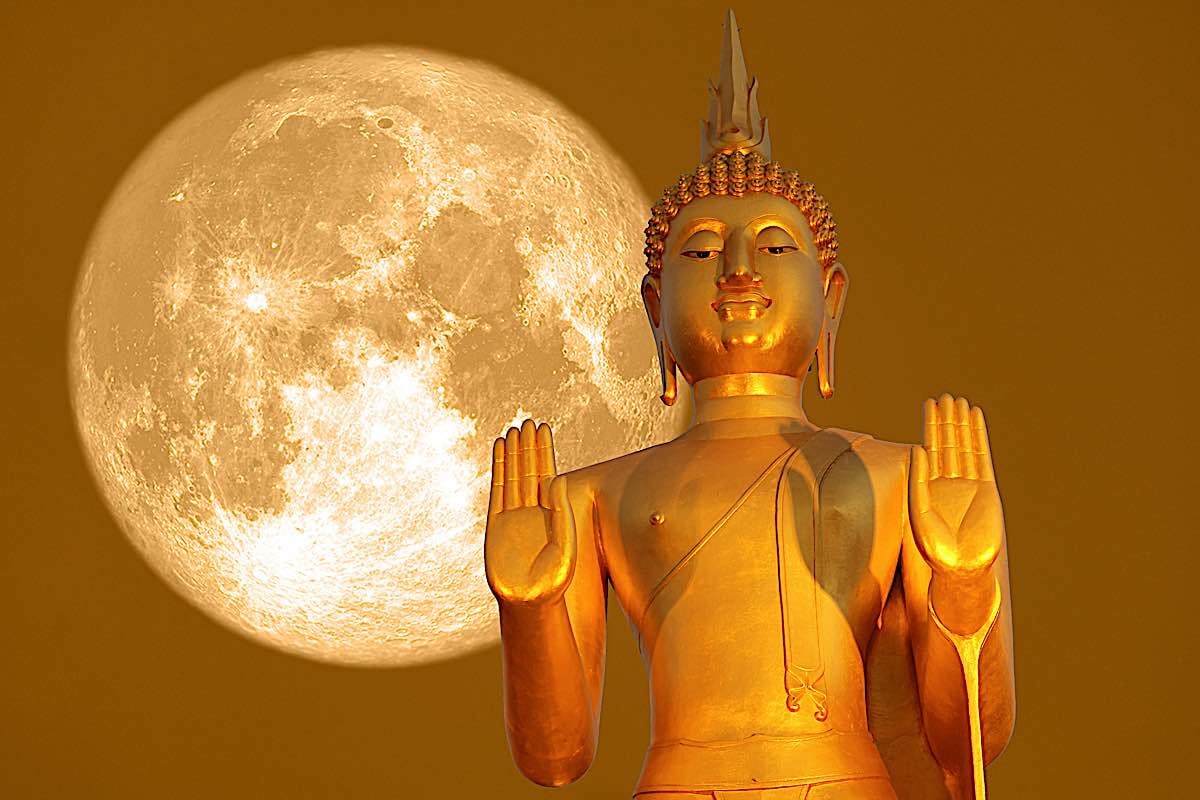
Buddha statue against a full moon. Lunar calendar is very important in Buddhism, with most major events celebrated according to the lunar calendar.
Although it may be celebrated at different times — due to the lunar calendar and cultural aspects — this year most Buddhists celebrate Vesak on May 16, 2022 this year if they celebrate by Lunar calendar (Lunar April full moon). Internationally, though, the full moon in May was established in 1950 by the World Fellowship of Buddhists. In 1999, the United Nations acknowledged Vesak internationally. This is from the UN website:
Vesak”, the Day of the Full Moon in the month of May, is the most sacred day to millions of Buddhists around the world. It was on the Day of Vesak two and a half millennia ago, in the year 623 B.C., that the Buddha was born. It was also on the Day of Vesak that the Buddha attained enlightenment, and it was on the Day of Vesak that the Buddha in his eightieth year passed away.
The General Assembly, by its resolution 54/115 of 1999, recognized internationally the Day of Vesak to acknowledge the contribution that Buddhism, one of the oldest religions in the world, has made for over two and a half millennia and continues to make to the spirituality of humanity. This day is commemorated annually at the UN Headquarters and other UN offices, in consultation with the relevant UN offices and with permanent missions, which also wish to be consulted.

Vesak celebrations on the way to flying lanterns at the Borobudur Temple.
A day to celebrate Buddha Dharma and Sangha!
On this day we celebrate not only the Buddha, but the Dharma and Sangha — the teachings and the community. Vesak is also known as Saka Dawa (Tibetan), Vesakha, Buddha Pumima, and Buddha Jyanti.
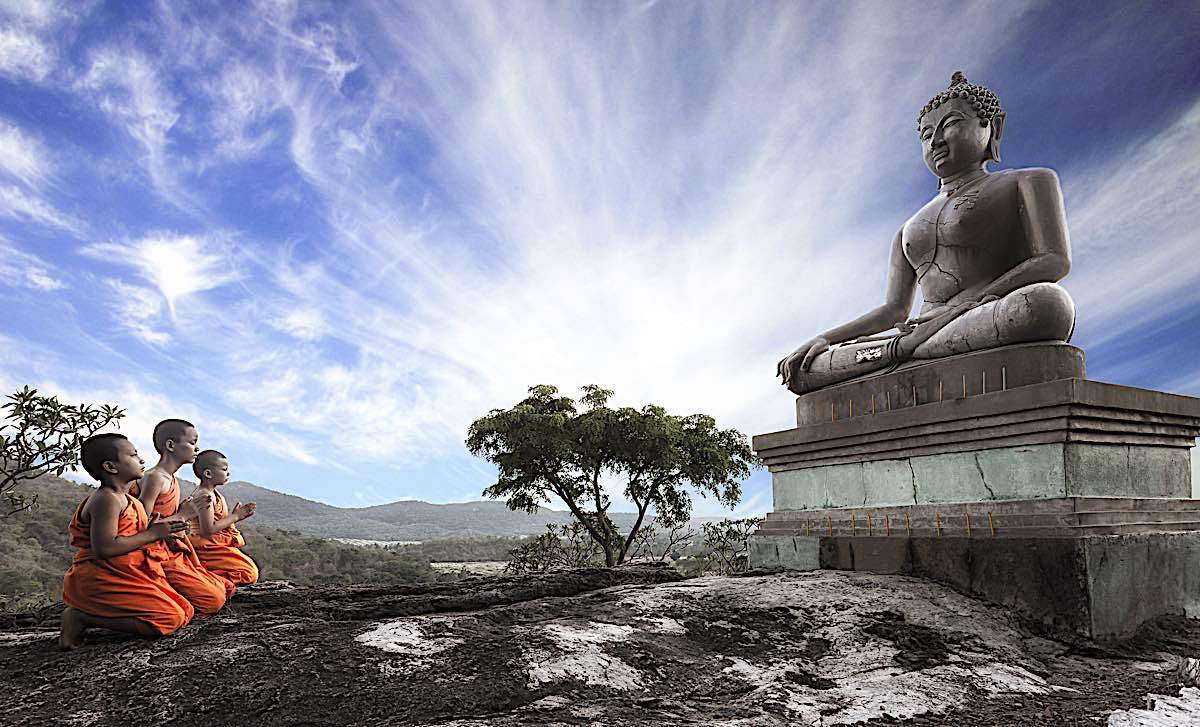
Monks on Vesak Day at Saraburi Thailand in front of Buddha statue.
The message from the former Secretary-General, Javier Perez de Cuellar, to Buddhists on the Day of Vesak in May 1986 reads:
“For Buddhists everywhere it is indeed a felicitous opportunity, while commemorating the birth, enlightenment and passing away of Guatama Buddha, to celebrate his message of compassion and devotion to the service of humanity. This message is today perhaps more relevant than ever before.”
Peace, understanding and a vision of humanity that supersedes national and other international differences are essential if we are to cope with the complexities of the nuclear age.
This philosophy lies at the heart of the Charter of the United Nations and should be prominent in all our thinking, especially during this International Year of Peace”–Javier Perez de Cuellar.
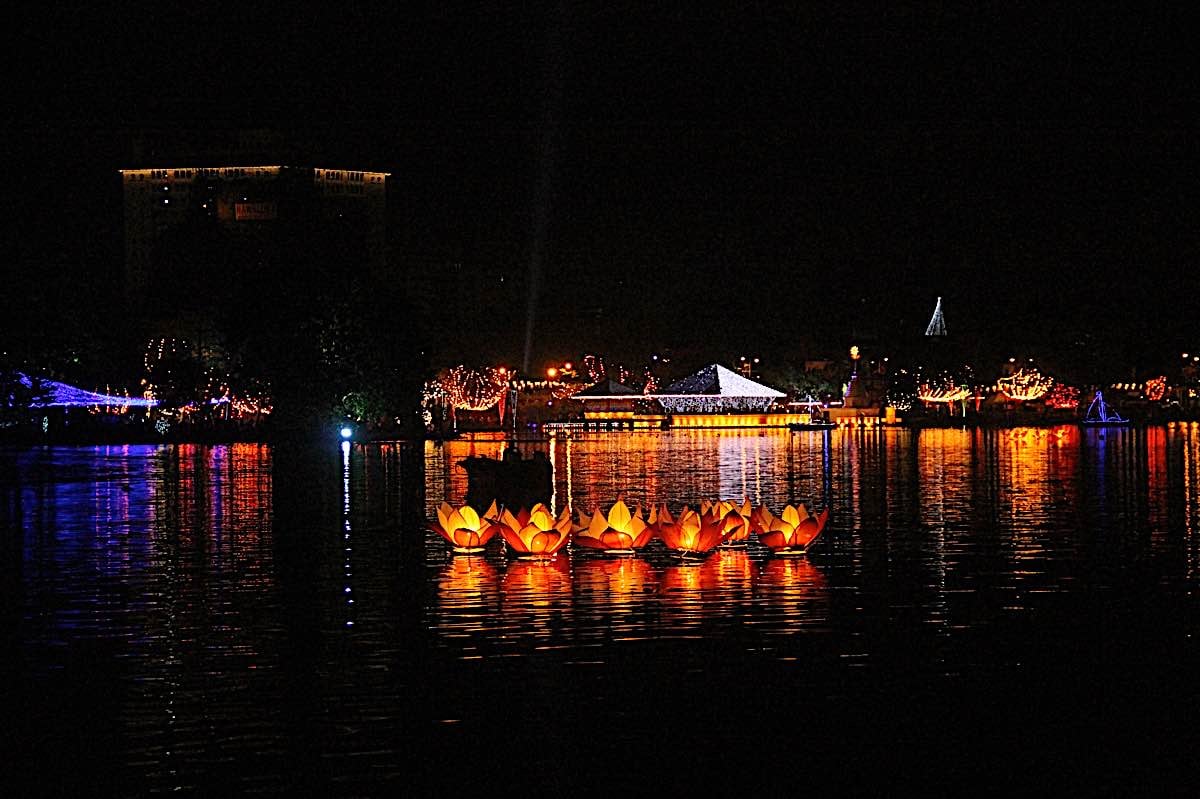
Vesak festival night in Sri Lanka near Gangarama temple. Lanterns are popular in many areas on Buddha Days.
Traditional activities of generosity
Affectionately known as Buddha’s Birthday, we traditionally make extra efforts to help the unfortunate, poor, sick, and aged, and engage in karma yoga activities including cleaning and painting gompas and temples, painting thanks, and feasting on vegetarian food—all in homage to The Enlightened One.In many traditions and countries, today, May 25, is Wesak, although the date varies due to lunar calendar variances between cultures and traditions. In Theravada traditions, we typically celebrate on the full moon in the 5th or 6th month, while in China and Korea Buddha’s Birthday might be on the eighth of the fourth month in the Chinese lunar calendar.
Temple statue of Shakyamuni Buddha, the historical Buddha, with offerings and decorations for celebrating Wesak, the Buddha’s Birthday.
Celebrating Vesakha
Typically, devout Buddhists will assemble at a temple or gompa before dawn for ceremonies and honouring of the Holy Three Jewels: the Buddha, the Dharma (Buddha’s teachings) and the Sangha (the Buddhist disciples and followers). Traditional offerings of flowers, water, incense are laid at the feet of the Buddha. On this day, there can be no killing of any kind if possible, and most eat only vegetarian food for the day. Even if the devout Buddhist is a lay practitioner, on days such as Wesak, we typically observe the eight Precepts as training in morality and humility, rather than just the five lay precepts:
1. I undertake to abstain from causing harm and taking life of any kind/
2. I undertake to abstain from taking what is not given.
3. I undertake to abstain from sexual misconduct.
4. I undertake to abstain from wrong speech: telling lies, deceiving others, manipulating others, using hurtful words.
5. I undertake to abstain from using intoxicating drinks and drugs, which lead to carelessness.
The additional precepts on Wesak and other special ceremonial days (or for non-lay practitioners all the time) are:
6. I undertake to abstain from eating at the wrong time—the correct time is after sunrise but before noon.
7. I undertake to abstain from singing, dancing, playing music, attending entertainment performances, wearing perfume, and using cosmetics and garlands or decorations.
8. I undertake to abstain from luxurious places for sitting or sleeping, and overindulging in sleep.
Shakyamuni Buddha, the current Buddha of our time, is honored by follower’s respect for the Dharma, His Teachings.
Homage to the Buddha
Guatama Buddha, the historical Buddha of our time, instructed us to pay homage to Him by sincerely following His teachings, the Dharma. Although offerings and flowers are respectful, genuine homage to Siddartha Buddha is conveyed by conduct. On Wesak, we renew our promises to follow the Dharma, to lead noble lives, to cultivate Bodhichitta, to develop wisdom, and—of overwhelming importance—practice loving kindness.

 BigThink
BigThink 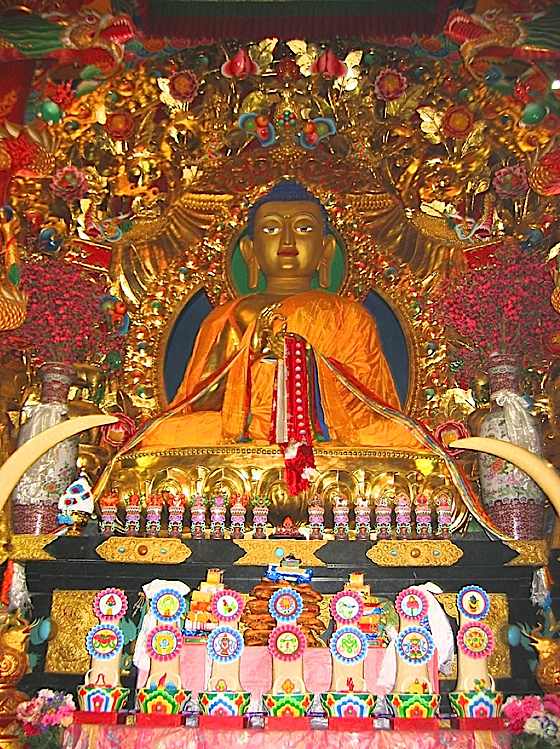
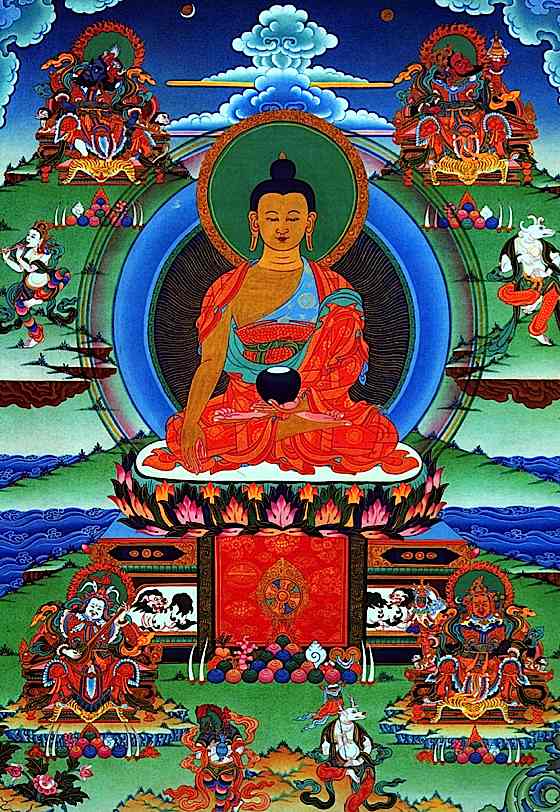











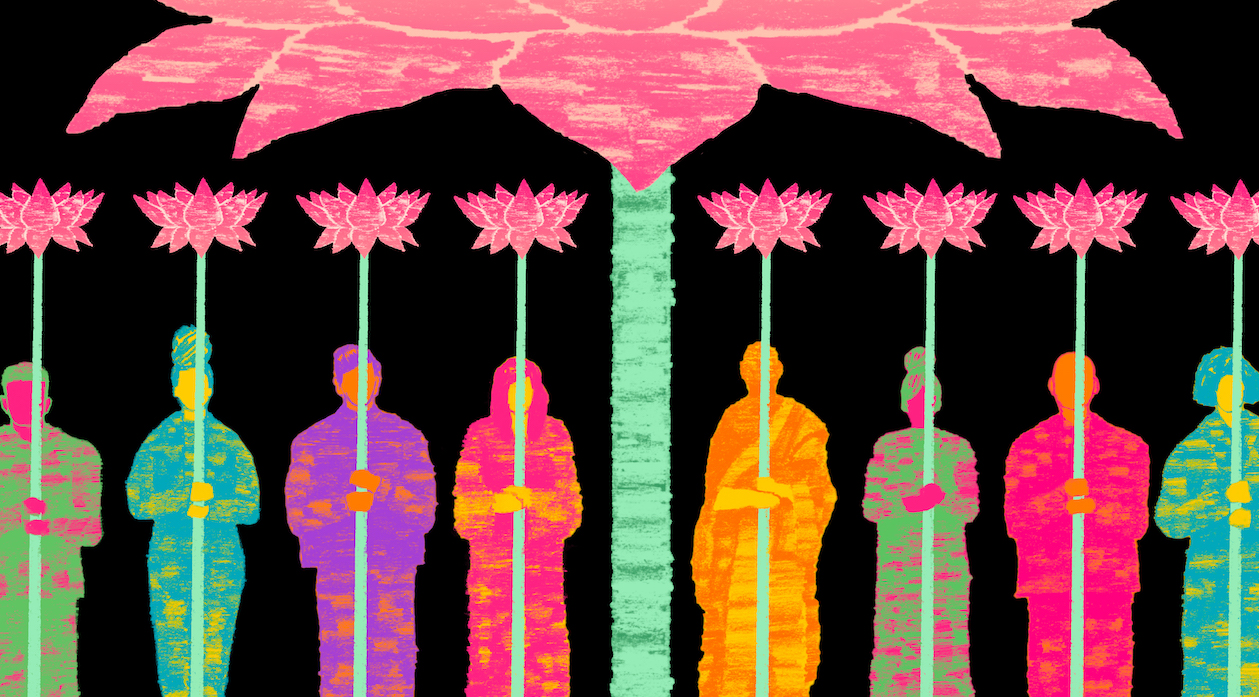














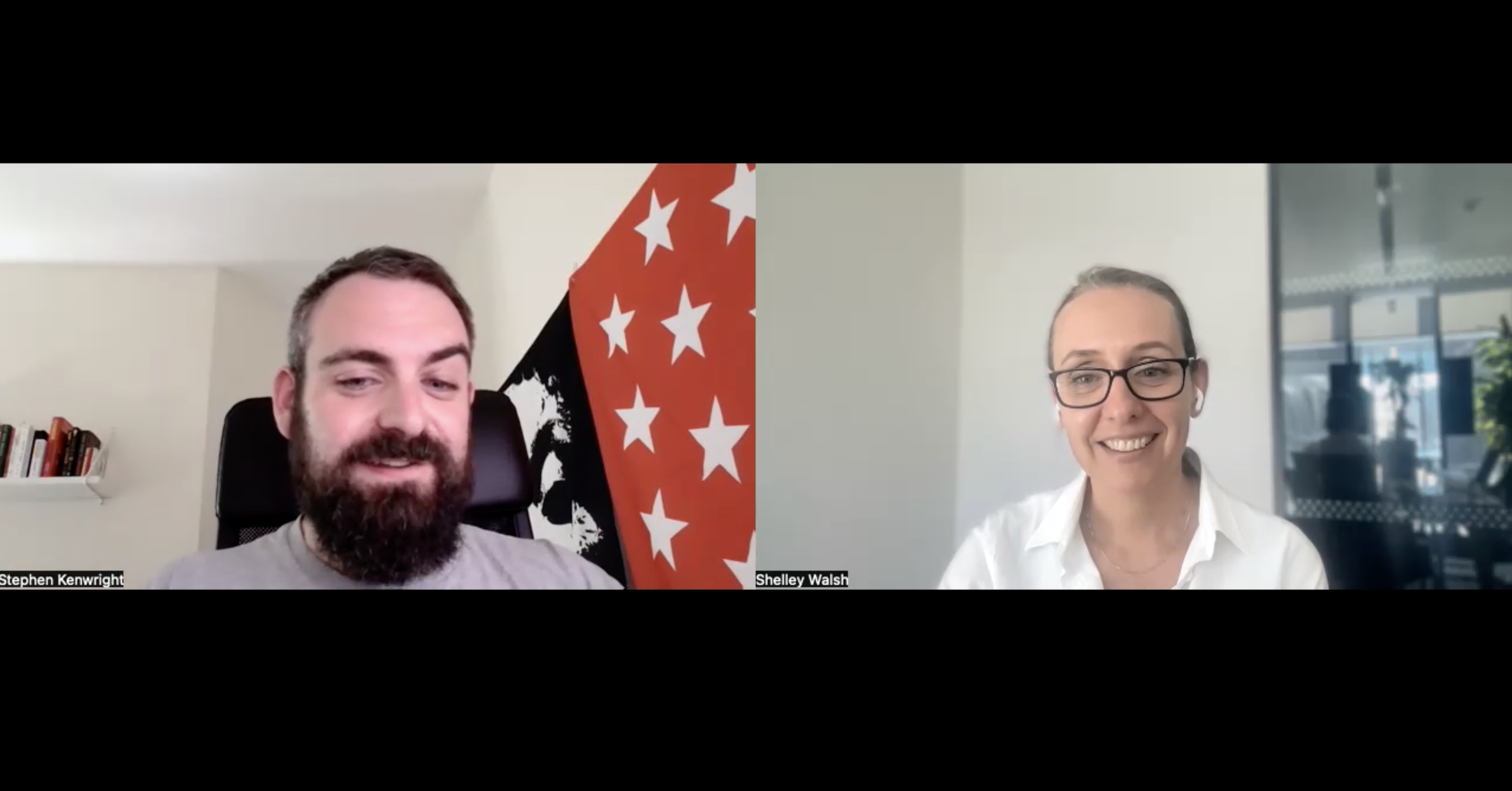
.jpg&h=630&w=1200&q=100&v=154b70b92d&c=1)




